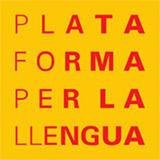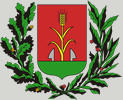15 august 2014
CANCELARIA PRIMULUI MINISTRU
De la: Oana Maria Brâncoveanu – Direcţia Relaţii Publice şi Comunicare
Către Domnul Izsak Balazs, preşedintele Consiliului Naţional Secuiesc
Domnule Preşedinte,
Referitor la adresa Dvs. nr. 16/20.06.7014, vă aducem la cunoştinţă menţinerea elementelor formulate în răspunsul transmis anterior în mai 2014.
Faţă de solicitarea adresată Prim-Ministrului de a retrage cererea privind intervenţia României în cauza T-529/13, vă informăm că decizia de interveni în această cauză la CJUE este una strict procedurală şi vizează prevenirea extinderii pe cale jurisprudenţială a competenţelor UE în domenii care ţin de suveranitatea statelor membre, precum protecţia drepturilor persoanelor minorităţilor naţionale. Considerăm că în acest domeniu Uniunea Europeană nu are competente atribuite în baza dispoziţiilor tratatelor fundamentale, aspect care a fost argumentat în observaţiile scrise de România Tribunalului UE ta data de 25 iunie 2014. Apreciem în mod deosebit iniţiativa cetăţenească europeană, definită ca un instrument de consolidare a democraţiei Uniunii Europene şi încurajăm folosirea acestuia de către cetăţenii unionali. Nu putem fi de acord, însă, ca acest instrument să fie folosit pentru a extinde competenţele conferite de UE in baza tratatelor fundamentale.
Cu stimă,
Director
Oana Maria Brâncoveanu
15 august 2014
Rãspuns la scrisoarea guvernului
Cãtre Guvernul României
Domnului Prim Ministru Victor Ponta
Stimate Domnule Prim Ministru!
În data de 14 aprilie anul curent v-am adresat o cerere în calitate de reprezentant al comitetului cetãtenesci al initiativei europene cu titlul „Politica de coeziune pentru egalitatea regiunilor si sustenabilitatea culturilor regionale” prin care am solicitat retragerea cererii de interventie a României în cauza T-529-34. În rãspunsul Dvs. din 1 august 2014 ati refuzat solicitarea noastrã, sustinând, cã interventia României vizeazã „prevenirea extinderii pe cale jurisprudentialã a competentelor UE în domenii care tin de suveranitatea statelor membre, precum protectia drepturilor persoanelor minoritãtilor nationale.”
Fatã de aceastã argumentare tinem sã precizãm urmãtoarele:
- 1. Initiativa amintitã se referã la politica de coeziune a Uniunii, si nu la drepturile persoanelor minoritãtilor nationale. Sub acest aspect interventia porneste de la o abordare gresitã a initiativei amintite, în consecintã argumentarea cererii de interventie este irelevantã.
- 2. „Extinderea pe cale jurisprudentialã a competentelor UE” este imposibilã. Competentele UE pot fi extinse doar prin modificarea tratatelor Uniunii Europene, ceea ce depãseste atât cadrul unei initiative cetãtenesti, cât si cadrul „cãii jurisprudentiale” deoarece CJUE nu modificã Tratatele UE. Sub acest aspect cererea de interventie este inutilã.
- 3. În scrisoarea noastrã din aprilie am arãtat, cã initiativa vizeazã o îmbunãtãtire a politicii de coeziune a Europei si a functionãrii Uniunii Europene cu efect pozitiv asupra conservãrii diversitãtii culturale a Europei. În viziunea noastrã succesul initiativei cetãtenesti în cauzã este interesul tuturor statelor membre ale Uniunii, inclusiv al României. Sub acest aspect era rational si util si din punctul de vedere al intereselor Statului Român interventia pe partea reclamantilor, si nu a pârâtului. Abordarea contrarã se poate întelege numai sub aspectul unei intentii ascunse de asimilare fortatã a colectivitãtii maghiare din România, în primul rând a secuilor majoritari în Tinutul Secuiesc.
- 4. Pentru a mentine UDMR-ul în coalitia guvernamentalã, nu demult ati promis Domnule Prim-Ministru cã România nu depune argumentare într-o altã cauzã, legatã la fel de o initiativã cetãteneascã, care în schimb într-adevãr se referã la drepturile minoritãtilor nationale. În cauza noastrã ati fãcut deja acest demers. O asemenea inconsecventa pune la îndoialã în fata CJUE însãsi credibilitatea intervenientului.
Cu stimã:
Izsák Balázs
Presedintele Consiliului National Secuiesc
Târgu - Mures 13-08-2014
29 aprilie 2013
Proces pentru Ţinutul Secuiesc
Consiliul Judetean Covasna a decis sã intenteze o actiune în justitie pentru ca Uniunea Europeanã sã adopte o reglementare prin care se va garanta drepturile unor regiuni cu mediu social specific, cum este si Tinutul Secuiesc.
"Am semnalat deja la numeroase forumuri cã, în România, limitele regiunilor de dezvoltare au fost trasate într-un mod nerezonabil, chiar contraproductiv. Judetele mai bogate din jur reduc potentialul de dezvoltare al Tinutului Secuiesc. Este evident cã judetul Covasna beneficiazã de mai putine fonduri destinate dezvoltãrii, pentru cã judetele Brasov, Alba si Sibiu, al cãror PIB din start este mai mare, absorb aceste posibilitãti. Uniunea Democratã a Maghiarilor din România a depus la Parlament un proiect de lege privind reorganizarea regionalã a tãrii. Anul trecut trei consilii judetene au initiat referendum în aceastã chestiune, însã prefectii l-au atacat în instantã, iar justitia a desfiintat proiectele" – a declarat Tamás Sándor, în cadrul sedintei ordinare de consiliu din data de 24 aprilie. Potrivit presedintelui CJ, forma actualã a regiunilor de dezvoltare contravine Directivelor europene în vigoare, pentru cã, în loc sã reducã disparitãtile regionale privind PIB-ul, potrivit experientei din anii trecuti, acestea au devenit si mai mari. Având în vedere interesele Tinutul Secuiesc, Tamás Sándor a arãtat: "Avem la dispozitie o nouã posibilitate sã ne facem vocile auzite. Noi trebuie sã avem în vedere interesele secuimii, cele ale locuitorilor maghiari si români, deoarece este inacceptabil faptul cã, în timp ce celelalte judete mai dezvoltate din punct de vedere economic se dezvoltã, noi rãmânem în urmã."
În 2013, mai multe persoane au depus la Comisia Europeanã initiativa cetãteneascã intitulatã "Politica de coeziune pentru egalitatea regiunilor si sustenabilitatea culturilor regionale", cu scopul ca regiunile cu particularitãti lingvistice sã beneficieze de o protectie specialã în Uniunea Europeanã. Initiativa si-a gãsit sprijin în numeroase tãri. Printre membrii comisiei care a elaborat initiativa se numãrã: Izsák Balázs România, Tinutul Secuiesc, Dabis Attila, Ungaria, Boldoghy Olivér, Slovacia, Dudda Roland, Austria, Gillet Pierre, Belgia, Jeursen Franciscus Albert Bernardus Olanda, Martiarena Miren, Spania, Tara Bascilor, O"ry Péter, Slovacia, Publik Antal, Suedia, Schmalcz Andreas Germania, Xucla Jordi, Spania, Catalonia. Din partea UDMR-ului deputatul Korodi Attila a participat la elaborarea initiativei.
Comisia Europeanã a respins înregistrarea initiativei cetãtenesti pe motiv cã, depãseste competenta Comisiei Europene. Consiliului National Secuiesc a depus contestatie la Curtea Europeanã de Justitie împotriva deciziei Comisiei Europene.
În urma votului de astãzi, pozitia judetului Covasna în acest proces va fi prezentatã de Tamás Sándor, în calitatea sa de persoanã juridicã de drept public va formula o cerere de interventie în procesul Izsák Balázs si Dabis Attila versus Comisia Europeanã, prin aceasta intervenind în favoarea reclamantilor.
Consiliul Judetean Covasna
Biroul de presã
25 aprilie 2014
Către Preşedintele şi Membrii Tribunalului Uniunii Europene
Oficiu
LUXEMBOURG
L-2925
Onorat Tribunal al Uniunii Europene!
Subscrisa Judeţul Covasna, în calitate de persoană juridică de drept public conform reglementărilor legale în vigoare în România (sediu: 520008 Sfântu Gheorghe, Piaţa Libertăţii nr. 4, Judeţul Covasna, România; reprezentată prin preşedinte Tamás Sándor; în continuare "Intervenient în interesul Reclamanţilor"), prin avocat împuternicit Romer Ambrus Izabella Agnes , cu sediul în Braşov, str. 15 Noiembrie nr. 92 sc.C ap. 15, jud. Braşov, România
În baza art. 40 din Statutul Curţii Europene de Justiţie şi a art. 115 din Regulamentul de procedură al Tribunalului formulăm CERERE DE INTERVENŢIE În cauza publicată sub nr. T-529/13 la data de 25 ianuarie 2014 în seria C, nr. 24 al Jurnalul Oficial al Uniunii Europene, (Izsák Balázs-Árpád şi Dabis Attila/Comisia Europeană), în scopul sprijinirii reclamanţilor.
25 iulie 2014
To: Balázs-Árpád Izsák, Attila Dabis
Subiect: Your request for registration of a proposed citizens' initiative
Title: of proposed citizens' initiative: "Cohesion policy for the equality of the regions and sustainability of the regional cultures"
Date: of request for registration: 18/06/2013 European Commission
The Secretary General
Brussels, 25.7.2013
C(2013) 4975 final
Dear organisers,
I refer to the request for registration of 18 June 2013 of a proposed citizens' initiative entitled "Cohesion policy for the equality of the regions and sustainability of the regional cultures".
As stated in Article 4(2) of Regulation (EU) No 211/2011 of the European Parliament and of the Council of 16 February 2011 on the citizens' initiative, the Commission shall register a proposed citizens' initiative Within two months from the receipt of the relevant information, provided that the following conditions are fulfilled:
(a) the citizens' committee has been formed and the Contact persons have been designated in accordance with Article 3(2) of Regulation (EU) N o 211/2011;
(b) the proposed citizens' initiative does not manifestly fall outside the framework of the Commission's powers to submit a proposal for a legal act of the Union for the purpose of implementing the Treaties;
(c) the proposed citizens' initiative is not manifestly abusive, frivolous or vexatious; and
(d) the proposed citizens' initiative is not manifestly contrary to the values of the Union as set out in Article 2 of the Treaty on European Union (TEU).
The Commission has examined your proposed citizens' initiative to ascertain Whether it meets these conditions as laid down in the above-mentioned Regulation.
I regret to inform you that, further to this examination, the Commission hereby refuses the registration of this proposed initiative on the grounds that it falls manifestly outside the framework of the Commission's powers to submit a proposal for a legal act of the Union for the purpose of implementing the Treaties.
The in-depth examination of the provisions of the Treaties that you suggested and of all other possible legal bases has led to this conclusion.
The main objective of your proposed initiative is to ensure the "equality of the regions and sustainability of the regional cultures" by paying "special attention to regions with national, ethnic, cultural, religious or linguistic characteristics that are different from those of the surrounding regions". You propose Articles 2 and 3 of the Treaty on European Union (TEU) as Well as Articles 153, 167, 170, 174, 176, 177 and 178 of the Treaty on the functioning of the European Union (TFEU) as possible legal bases for your initiative.
In order to reach this Objective, as described in the request for registration and the background document, you propose that the requested legal act includes three precise points aimed at, namely:
l) ensuring that Member States entirely fulfil their international commitments regarding national minorities;
2) defining the concept of "national" regions, i.c "regions with national, ethnic, cultural, religious or linguistic characteristics that are different from those of the surrounding regions";
3) identifying the "national" regions name-by-name, taking into account the criteria in the listed international documents, and the will of the relevant communities.
With regard to the first point, neither the Treaty on European Union, nor the Treaty on the Functioning of the European Union provide a legal basis for adopting a legal act allowing to ensure that Member States fulfil their international commitments regarding national minorities.
According to your request, the second and third points above are necessary in order to pay special attention to the regions concerned in the context of the EU cohesion policy. However, any measure adopted under the cohesion policy legal bases of Articles 177 and 178 TFEU are limited to achieving the objective of strengthening economic, social and territorial cohesion as referred to in Article 174 TFEU. Promoting the conditions of national minorities cannot be understood as helping to reduce "disparities as to the level of development between regions" and underdevelopment of certain regions, as set out in Article 174(2) TFEU. In that respect, the list of "disadvantages" set out in Article l74(3) TPEU that trigger an obligation to pay "particular attention" to a given region is exhaustive. Therefore Articles 174, 176, 177 and 178 TFEU cannot constitute legal bases to adopt the proposed legal act.
Irrespective of their field of action (thus including that of cohesion policy), the Union institutions are bound to respect "cultural and linguistic diversity" (Article 3(3) TEU) and to refrain from discrimination based on "membership of a national minority" (Article 21(1) Charter). However, none of these provisions constitutes a legal basis for whatever action by the institutions.
In addition, Article 2 TEU cannot be a legal basis for proposing legislation. Articles 153, 167 and 170 TFEU cannot either constitute legal bases for the proposed legislation as it would not contribute to any of the objectives of the policies set out in these provisions.
In conclusion, the Commission considers that there is no legal basis in the Treaties which would allow a proposal for a legal act with the content you envisage.
For these reasons, your proposed citizens' initiative falls manifestly outside the framework of the Commission's powers to submit a proposal for a legal act of the Union for the purpose of implementing the Treaties.
Should you wish to appeal against this decision, We would like to draw your attention to the means of redress available.
You may either:
- Bring proceedings before the General Court under the conditions specified in Article 263 of the TFEU; or
- If you wish to complain about maladministration, file a complaint with the European Ombudsman under the conditions specified in Article 228 of the TFEU
Please note that this letter will be published on the Commission's website for the citizens' initiative in order to inform the public of this decision in a transparent way.
Yours faithfully,
Catherine Day
18 iunie 2013
This morning the initiative was supplied to the European Commission, using the online possibility offered by the Commission.
The Commission confirmed this through an email sent to Mr. Balázs Izsák, the representative of the citizens' committee. They also communicated, that the initiative will be examined and at least on the 18th of August the initiators will receive an official answer, whether the initiative complies with the formal conditions and therefore will be registered.


 ENGLISH
ENGLISH MAGYAR
MAGYAR ROMÂNĂ
ROMÂNĂ DEUTSCH
DEUTSCH CATALÀ
CATALÀ SARDU
SARDU ESPAÑOL
ESPAÑOL JĘZYK POLSKI
JĘZYK POLSKI FRANÇAIS
FRANÇAIS EUSKARA
EUSKARA GALEGO
GALEGO NEDERLANDS
NEDERLANDS BREZHONEG
BREZHONEG











































































